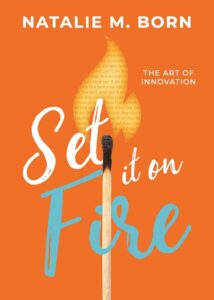Deepfakes Demand More Intelligence
Even though it had been around for quite a while, I only recently heard the term “deepfakes.” The recent college graduate who introduced me to it explained it refers to phony videos or other graphic creations of people, places or events that don’t exist.
Sadly, in the age of rapidly advancing Artificial Intelligence, I fear deepfakes will become more prominent. Especially in the already rumor-and-speculation-plagued world of national politics.
It would seem at the dawn of 2024 we are entering a Twilight Zone-like reality, where it will be increasingly difficult to discern truth from fiction. Without a counterbalance against fraudulent practitioners, I see it getting worse as AI runs through society like a steamroller.
Ethical Concerns

Among them: data security, the need to understand the biases used to create the data that trained the system, and the need for transparency in understanding the data behind the training.
The one that caught my eye was headed (can you guess?): “Deepfake.”
“The scariest part of AI is that it can be used to place people where they never were, saying things they never said and doing things they have never done,” Born wrote. “How do we know the real from the fake? Additionally, how might deepfakes sway public opinion or even elections?”
That last word is serious. As if we didn’t have enough suspicions about ballots, we must wonder if what we will hear in 2024 is real or myth parading as news and information.
Practical Action
What is the average person to do when we are awash in information and opinion? Especially since so much of that originates with those who have an axe to grind? I would suggest several practical steps:
- Withhold instant judgment on candidates or issues
It is easy to form opinions without researching varying perspectives. But with online searching easier than ever, it is possible to get additional views of a situation.
- Avoid jumping to conclusions based on the flimsiest of information
I used to be guilty of this myself. With age has come a bit more wisdom. Whatever hot-button issue you care to name, the truth is often more nuanced than is proclaimed in bumper-sticker proclamations. Or, mischaracterization, when a candidate puts a 180-degree spin on what an opponent actually said, completely misconstruing the truth.
- Avoid echo chambers

Ironically, in research I found this article that calls echo chambers a myth. Among the factors it cites is research showing that social media increases exposure to opposing opinions. And, that those who engage with partisan news also engage with mainstream news.
While I hate to argue with scholars, I have observed plenty of folks who do only expose themselves to views from people who think the same way they do.
- Pray
I know lots of folks think this is for the feeble minded, but when it comes to seeking wisdom, there is no one better than the Creator.
I’m not alone. At the mid-point of the Civil War, President Abraham Lincoln issued a proclamation appointing a day of national humiliation, fasting, and prayer.
Given the threats posed by AI and other factors, it could help us to embrace Lincoln’s call to serious reflection.



One Response
Check out the interview that Jan Jekielek (Sr Editor of “The Epoch Times” and host of the interview series “American Thought Leaders”) on January 23, 2024. The interview is with Dr. Michael Nehls whose book – “The Indoctrinated Brain: How to Successfully Fend Off the Global Attack on Your Mental Freedom” – explains how changes in our brain (particularly the hippocampus) make us more susceptible to indoctrination. He has studied the decline in psychological resilience, the weakening of our “mental immune system,” if you will, in Western populations over the past several decades. Our hippocampus shrinks without the mental stimulation of creativity and curiosity, and our current culture squashes those. It’s not an encouraging interview, but it explains a lot of our current madness.
Comments are closed.